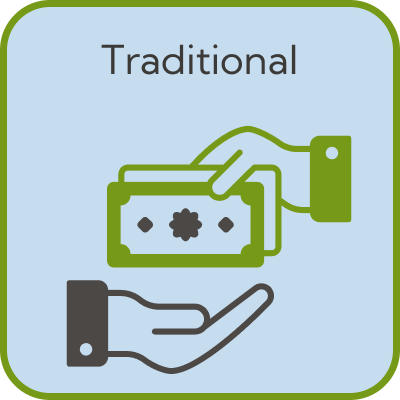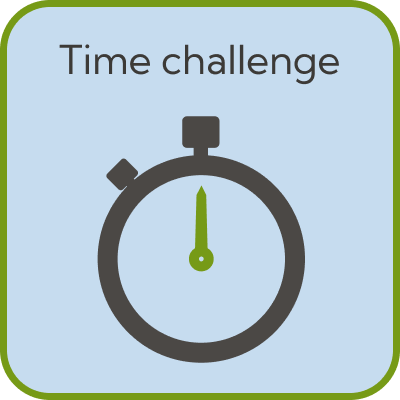Fundraise by participating in Self-organised plank challenge!
Self-organised plank challenge
Embark on a Self-Organised Plank Challenge, an engaging and physically demanding way to raise funds for your chosen charity while promoting fitness and resilience. In this challenge, you will time yourself holding a plank position, with the objective of maintaining it for as long as possible. You can do this in a single attempt or over multiple sessions, pushing your endurance to the limit while encouraging sponsors to pledge donations based on the time you hold the plank.
Using the Plank Challenge for charitable fundraising is an excellent idea because it not only tests physical strength and mental stamina but also has a low barrier to entry. Almost anyone can participate regardless of fitness level, making it inclusive and adaptable. Additionally, this challenge has a clear, measurable outcome (time held in plank), which can be easily shared and verified, increasing the transparency and trustworthiness of the fundraiser.
To organize a successful Plank Challenge, start by setting a clear goal for the duration you aim to achieve and the total funds you hope to raise. Announce your challenge well in advance through social media, emails, and direct communication to gather as much support as possible. Make sure you practice regularly leading up to the event to improve your endurance. On the day of the challenge, set up a video livestream so donors can watch your attempt in real-time, enhancing engagement and trust. This setup also enables instantaneous cheering and support from viewers, which can be a huge motivational boost.
The best Sponsivity challenge types for a Plank Challenge would be the Time Challenge and Wager Challenge. In the Time Challenge, your donors pledge money based on how long you can hold the plank—per minute or per second. This model incentivizes you to hold the plank for longer as the longer you hold it, the more you raise. The Wager Challenge could be particularly exciting as you could set a high target time (e.g., 5 minutes), and if you reach or surpass this target, it could trigger a larger amount from donors who have pledged for this threshold. Both models tap into the performance-based aspect and create a thrilling experience for both you and your sponsors, leveraging the excitement to drive donations.
By incorporating these challenge types, you're not only setting out to meet your personal fitness goals but also creating a larger impact through your fundraising efforts. So, stretch out, warm up, and get ready to plank your way to making a difference!

Sponsivity offers you several ways to raise for Self-organised plank challenge


💪 Physical Endurance – A Test of Strength & Stamina for Charity
Physical endurance challenges are some of the most demanding and rewarding ways to raise money for charity. These events push fundraisers to their limits, whether through long-distance running, cycling, swimming, or multi-hour challenges, making them highly compelling for donors. The harder the challenge, the more supporters are inspired to give.
Why Physical Endurance Works for Fundraising:
- High Engagement: Donors love to support fundraisers who commit to extreme endurance challenges, seeing their dedication as a strong reason to give.
- Scalable & Inclusive: Endurance events can range from personal step challenges to Ironman triathlons, making them accessible for all fitness levels.
- Long-Term Fundraising Potential: The extended training and preparation period allow fundraisers to build momentum and keep donors engaged.
- Great for Time & Distance Challenges: Fundraisers can challenge themselves to beat a time, achieve a distance, or push beyond their limits for charity.
Examples of Physical Endurance-Based Fundraisers:
- Marathon or Ultra Run: “Help me raise £2,000 as I take on my first 100K ultra-marathon!”
- Long-Distance Cycle Challenge: “I’m cycling 1,000 miles across the UK for charity—sponsor me per mile!”
- Extreme Fitness Challenge: “I’m doing 24 hours of non-stop exercise—every donation pushes me further!”
Physical endurance fundraisers inspire, challenge, and motivate, creating an unforgettable experience for participants and a powerful reason for supporters to donate.
Set bespoke rewards that suit physical endurance
- Playlist pick - any song of your choice repeated 3 times on my playlist!
- Photo eating your chosen race snack (max 50g!)
- 20 press-ups after the finishline
🧠 Mental Challenge – Pushing Limits for a Good Cause
Mental challenges test focus, resilience, and determination, making them a unique and engaging way to fundraise. These challenges often involve problem-solving, endurance under pressure, or personal restrictions, such as memory feats, puzzle marathons, or digital detoxes. Fundraising through mental challenges allows participants to showcase their mental strength and discipline, inspiring supporters to donate.
Why Mental Challenges Work for Fundraising:
- Highly Inclusive: Unlike physical challenges, mental challenges can be attempted by anyone, regardless of fitness level.
- Great for Social Engagement: Challenges like chess marathons, escape room events, or language-learning goals are easy to share and track online.
- Endurance & Dedication: Tasks that test patience and willpower—like 24-hour challenges—demonstrate commitment, motivating donors to give.
- Unique & Entertaining: Creative challenges stand out, making them highly shareable on social media and drawing attention to the cause.
Examples of Mental Challenge-Based Fundraisers:
- Memory Challenge: “I’m memorizing 500 digits of Pi—sponsor me to support dementia research!”
- Endurance Puzzle Challenge: “Help me complete 10,000 Sudoku puzzles in a month for charity!”
- No-Talking or Digital Detox Challenge: “Support my 48-hour silent retreat—every donation helps my cause!”
Mental challenges showcase creativity, discipline, and perseverance, making them a fun and inspiring way to raise money while pushing personal limits.
Set bespoke rewards that suit mental challenge
- Join me in my challenge for 1 day
- Get defeated by me at chess online during the challenge
📅 Self-Organised – Fundraising on Your Terms
Self-organised fundraising challenges put you in control, allowing fundraisers to create a challenge that’s unique, personal, and tailored to their passions. Unlike organised events, self-organised challenges offer complete flexibility—whether it’s a solo endurance test, a creative personal challenge, or a community-driven activity.
Why Self-Organised Challenges Work for Fundraising:
- Full Flexibility: Choose the activity, location, and timing that works best for you, making fundraising accessible and achievable.
- Personal & Meaningful: Custom challenges allow fundraisers to connect with their audience by choosing something significant to them.
- Low-Cost & Inclusive: Without the need for event entry fees or logistics, anyone can participate, making it easy to involve family, friends, or colleagues.
- Perfect for Challenge Chain & Wager Models: Self-organised challenges can inspire others to join in, spreading the impact through viral nominations.
Examples of Self-Organised Fundraisers:
- Personal Running Challenge: “I’ll run 5K every day for a month—support my journey!”
- DIY Fitness Marathon: “I’m doing 1,000 push-ups in a day—every donation pushes me further!”
- Creative Challenge: “I’ll cycle across the country dressed as a superhero—help me hit my fundraising goal!”
Self-organised challenges allow fundraisers to turn their creativity, passions, and dedication into real impact, making it a powerful and accessible way to raise money for a cause.
Set bespoke rewards that suit self-organised event
- Rename the challenge in your honour
- Bring home-baked cookies to the finishline